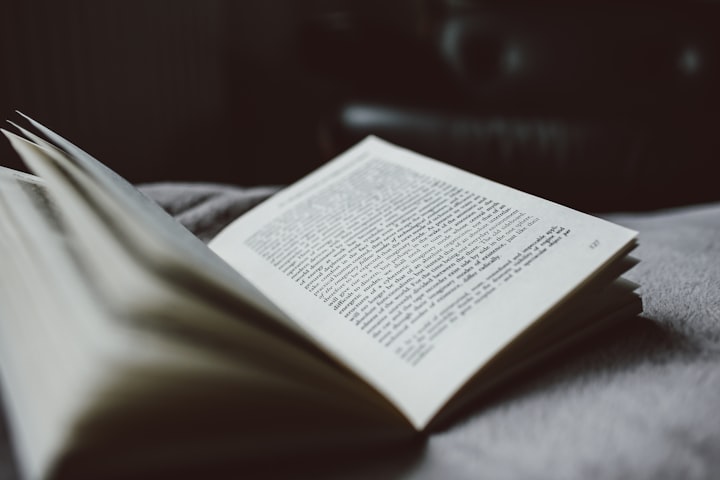Traditional Publishing vs. Self Publishing
Pros and Cons for Each Publishing Path

When it comes to looking for jobs from home, there are many different options. For some, it's as simple as finding a remote work position. Others start their own business and offer a service.
One vocation that gets a lot of attention is writing.
Becoming a writer isn't very difficult. Many people write as a hobby. However, becoming an author is a different beast.
It is possible to have your work published one way or the other. Aspiring authors need to decide whether they want to go with traditional publishing or take the self-publishing route.
There are many opinions regarding this issue. Some see traditional publishers as gatekeepers, and others see self-publishers as talentless. Whatever your feelings are on the topic, you must know the key differences to decide what will work best for you.
Royalties and Ownership
The earnings you make from selling books are called royalties. The amount of royalties you receive depends on how you decide to publish.
When traditional publishers agree to release a book, they purchase the rights from the writer. This means they own the story and make the bulk of the money. The royalties offered to the author are a percentage of what the publishing house earns.
Self-published authors keep the rights to their stories and are entitled to all the royalties made from book sales.
Many aspiring authors dream of the day when they will get the same deal that Stephen King did for Carrie. The myth is that King was offered a $400,000 advance for his book. That wasn't the case.
Instead, when King originally published the book in hardback through Doubleday Publishing, he received a $2,500 advance. Is that terrible? No. Especially not in 1974. But it wasn't enough money that he could quit his job and pursue writing full-time.
The hardback book sold 13,000 copies, which is also pretty impressive, but again, it wasn't enough for him to quit his job.
It wasn't until Doubleday sold the paperback rights of his book to Signet Books that he got the impressive payout. They bought the rights for $400,000, and he got $200,000 out of it.
The amount King got was huge, but it is unlikely many other offers will get that kind of advance.
In the self-publishing sphere, many authors earn six figures or more each year. For example, the podcast Six Figure Authors has three hosts who are six-figure authors: Lindsay Buroker, Joseph Lallo, and Andrea Pearson.
Publishing Process
The steps involved in actually publishing your book differ widely between the two publishing styles. With the traditional route, authors let the publishers take care of it all. This means they can give input on cover design, marketing, and layout, but ultimately, the publisher decides.
This can be seen as less complicated, but it also doesn't allow the author the creativity of making their book their own.
For indie authors, publishing is a lot more complicated. After writing the book and having it appropriately edited and beta read, they have to either pay for the cover design or create one themselves. They will also need to consider where they want their book released and which company they want to do it through.
Then there is the formatting of the document you've made. Creating a polished book is not easy. Authors need to understand the program they used to write the book if they want it to look professional inside the book.
Sometimes, having a word doc formatted correctly isn't enough. When you convert it over to EPUB or MOBI files, everything can change if you haven't formatted your word document correctly.
Without training, it is trial and error to figure everything out, and it can be very time-consuming.
Editing
Traditional authors don't have to worry about finding an editor for their work. The publishing house will have someone on staff to do that. However, the author will have to make the changes requested by the editor, especially in the beginning.
This means crucial pieces of the story can be shuffled around or removed altogether. The author doesn't have much control over how the story is portrayed.
Indie authors have the opposite struggles. They aren't guaranteed to find a good editor. Indies will consider many different options and hope the one they hire is the best fit for their book.
Then they have to add the cost of an editor to their budget. While it's not always true, the consensus is that if you want a good editor, you have to be willing to spend the money.
However, once the author has settled on someone for their book, they remain in creative control.
The editor they hired can give their suggestions, and the author is free to accept those suggestions or reject them. Though it would be wise to strongly consider any changes your editor suggests.
Marketing
One myth that many aspiring authors believe is that traditional publishing requires no marketing from the author. This isn't the case. Traditional authors are expected to market their books just as much as indie authors. The difference is that the publishing house gives them a boost in conventional media.
Many traditional authors have to go on book tours, visiting different cities to raise awareness of their books. They also have to maintain social media accounts to interact with their fans like indie authors.
The key difference here is the boost from traditional media and the funds for paid advertising.
Indie authors will need a marketing budget, and they will have to learn the best ways to market their books. If they want to do a book tour, they must make all the arrangements themselves and pay for it.
Overall, the main issues for an author's decision come from cost and ownership. If the value of owning the rights to a story is higher than the time and price of self-publishing, then that's the way to go. However, if you are okay with not having the rights or creative control, then traditional publishing is the best route.
About the Creator
Amanda Jeffery
Amanda is a creative writer, journalist and witch. She has been writing since she was knee high to a grasshopper, and is a freelance writer. She has published a fantasy novelette, The Fourth Year Spell, which can be found on Amazon.






Comments
There are no comments for this story
Be the first to respond and start the conversation.